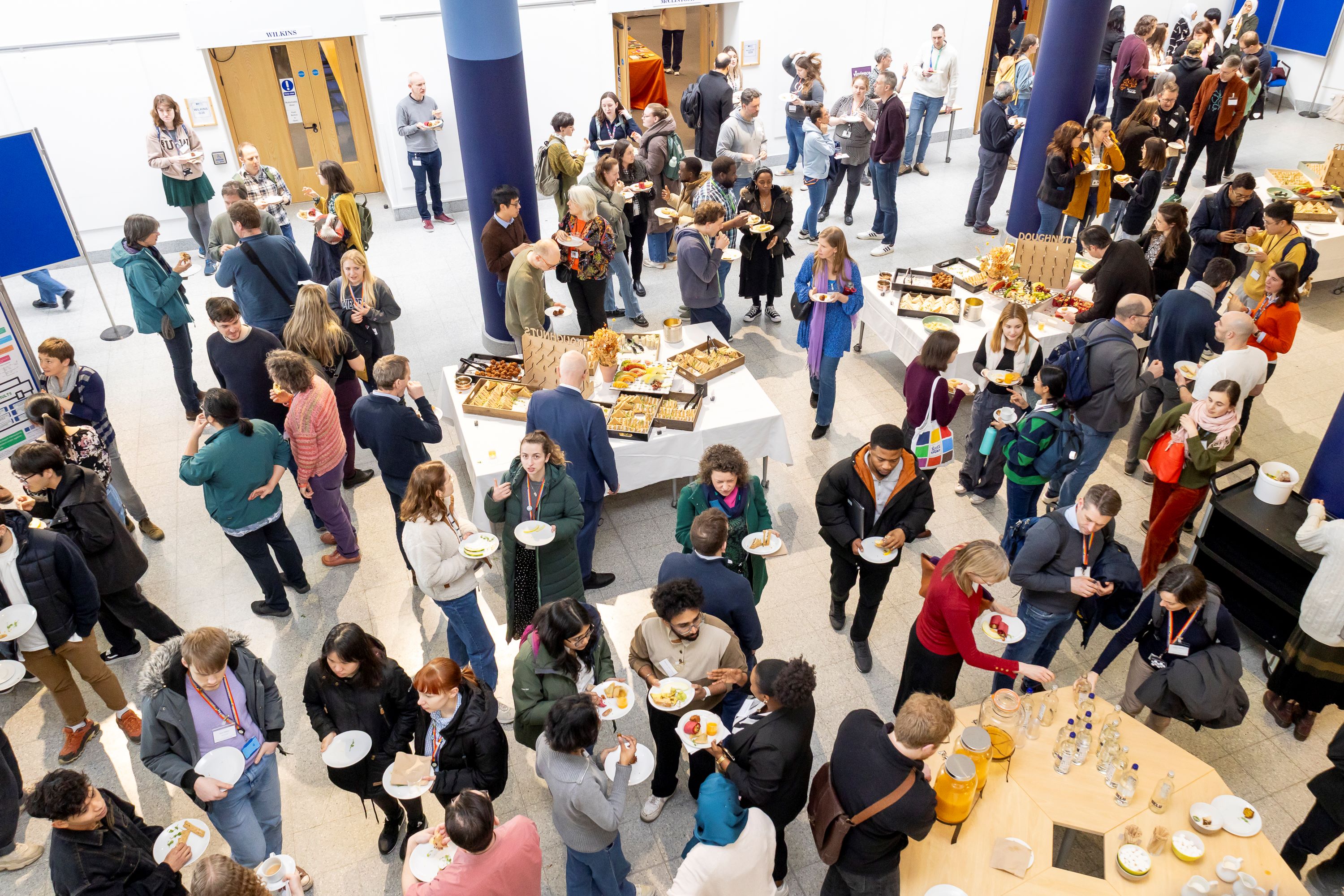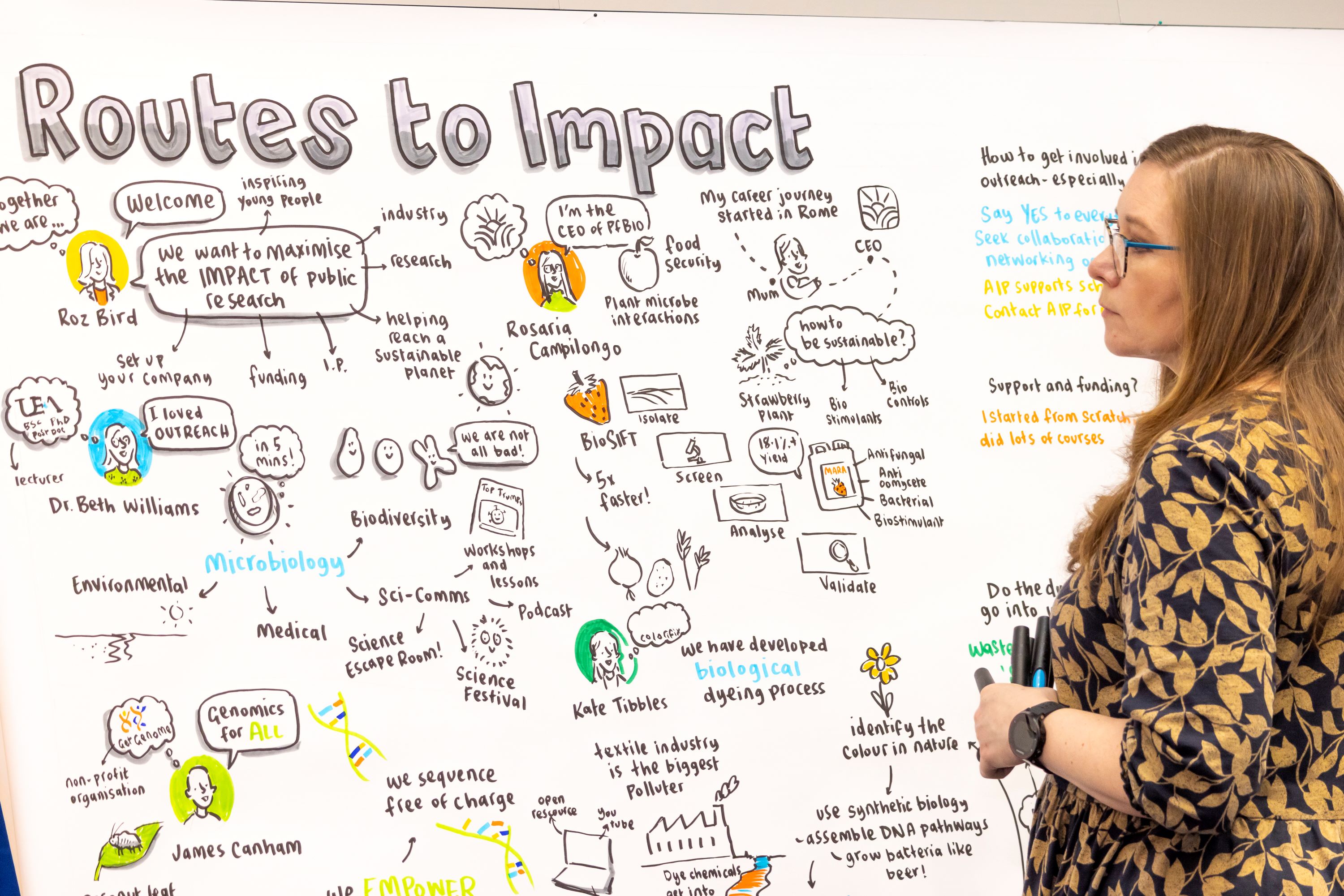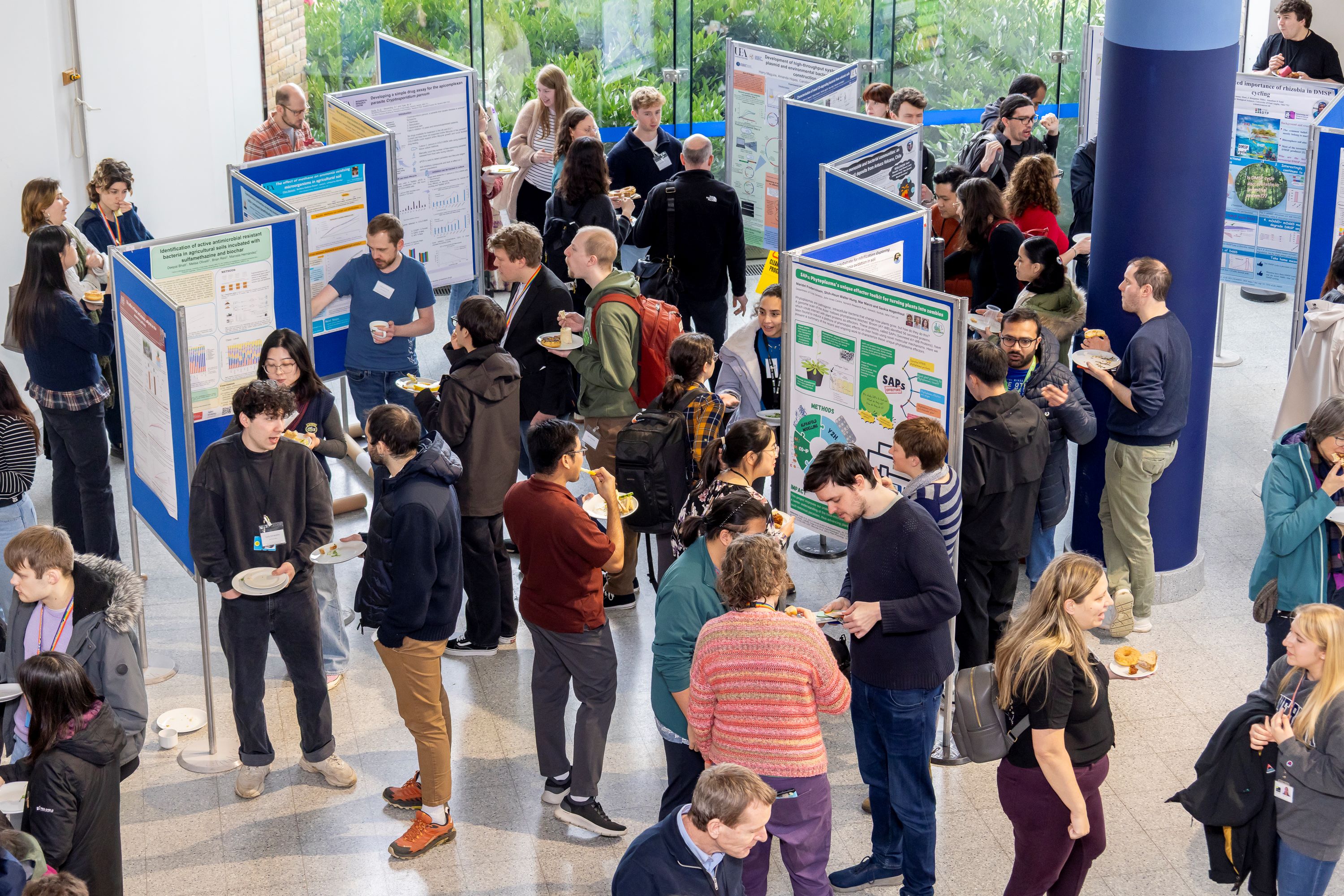Microbiologists gather for the inaugural Centre for Microbial Interactions Annual Conference
Norwich Research Park hosts one of the world’s largest clusters of microbiologists on a single site. Together they make up the Centre for Microbial Interactions, which was established last year and recently met for its inaugural conference.

The conference was an important milestone for the Centre, as it was the first time all the members from more than 100 separate research groups had come together. The two-day conference gave them the chance to showcase their research, share ideas and thoughts with colleagues from different institutions, and to start conversations about future collaborations.
Day one focused on research being conducted into human health and covered topics such as anti-microbial resistance (AMR), microbial communities, genomics, and patient welfare. Day two looked at the issues associated with climate change, agri-plants, the environment, and engineering biology.
An interactive panel discussion also explored the opportunities that exist for people wanting a career in scientific support roles such as technical services, business development, operations and facility management. Another panel called ‘Routes to Impact’ – chaired by Roz Bird, CEO of Anglia Innovation Partnership – showcased how microbial-related research is having an impact beyond the laboratory.

The importance of showing how microbiological research can have a positive impact on so many parts of society cannot be underplayed. It means that more funding can be attracted to carry out specific projects, and equally it demonstrates how publicly-funded research can make a real difference to many people across the globe.
Roz said: “I am very keen to showcase the impact that our community of microbiologists can have in the real world, whether that is through brilliant business ideas, outreach programmes with schools or not-for-profit work in areas of the world where inequity exists.
“This conference and the establishment of the Centre for Microbial Interactions is a really powerful platform to highlight the diversity of ground-breaking research being carried out right across Norwich Research Park’s campus.”
In the main reception area of the conference there was a poster exhibition that showcased the work of many of the microbiology research groups from across the Park. The idea for the posters was to give delegates a quick overview of the fields of research the groups are working in, the aims of the research, and the results and outcomes so far.

Prof Mark Webber, director of the Centre for Microbial Interactions and group leader at the Quadram Institute, said: “It’s really important that we are able to join together to share our cumulative knowledge and expertise, and to network, because collaboration is often the key to making breakthrough scientific discoveries in the field of microbiology.
“Microbiology touches all of our lives, from the food we eat to our health and the future of our planet. The Centre for Microbial Interactions was established to better promote and educate people about the value of microbiology and to provide a better platform for those of us at all the institutions based at Norwich Research Park to work together more closely, with the ultimate aim of delivering real world benefits.”
Dr Sam Rowe, project manager for the Centre for Microbial Interactions, who organised the event, said: “It was fantastic to see our diverse and extensive community come together over the two days of the conference. The initial feedback I have received has been wholly positive.
“Having one of the largest groupings of microbiologists on one site anywhere in the world is a real advantage we have here at Norwich Research Park. We want to make the most of harnessing that power so that we can provide practical solutions to address some of the biggest challenges we face in food security, human health and climate change.”
Posted on 18th March 2025 in News Release.
Tags: Norwich Research Park, People, Science